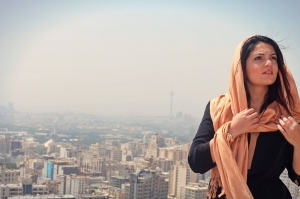Hold Your Breath, If Only for a While
Iran, the West and the November 24th Nuclear Agreement Deadline
In the Middle East, the region where the spread of Islamic fanaticism, practice of extremism and acts of terrorism have become prevalent, Islam – at least in its fanatical and extremist form – is on hiatus in Iran. The country has seen slow yet progressive changes over the years since the 1979 Islamic Revolution. With a decline of people attending mosques and a more open attitude towards Western trends and culture, traditional religious society in Iran is slowly diminishing. Qom, a city considered as one of the religious centers of the country, has become industrialized over the years. You will find a mosque and a large shopping mall in the same vicinity of this holy city.
Instead, the Islamic Republic is getting ready to finalize a nuclear deal with the West (namely the EU 3 + 3 comprised of the UK, Germany, France, the U.S., China and Russia) and to move forward after a decade-long standoff over Iran’s alleged pursuit of developing nuclear weapons.
With Mahmoud Ahmadinejad, the former president of Iran who maintained a continuing hostile relationship with the West as well as Israel, no longer in the picture, the new, more reform-friendly (as some perceive) President Hassan Rouhani has paved way for a more open dialogue with the West. The days of being in denial of the Holocaust are gone in the presidential office. The focus of Iran’s foreign policy is now on the betterment of its economy and society – the country took a turn for the worse when the international community had imposed harsh sanctions.
It is no surprise that the Geneva accord, having taken place just over three months after President Hassan Rouhani assumed office, came with some positive results. The accord saw a softening of sanctions in exchange for curbing some nuclear activity in Iran. Businesses overseas soon began approaching distributors in Iran, opening a conversation of trade and sale of goods. European companies were one of the first in these early discussions, as well as leading Korean consumer communication technology giants LG and Samsung, having sold a mass amount of its products that are now on shelves and available in Iran. Apple is now actively seeking business opportunities in the Islamic Republic to compete with LG and Samsung. Companies such as Dell Inc. and General Electric are also in contact with distributors to discuss the sale of computers and power generation equipment. Three decades after their last business liaison with the Islamic Republic, Boeing Co., having cut ties with Iran in 1979, has started business with Iran Air since bans were lifted a year ago.
With a population of over 77 million people, Iran is considered a large market and of great interest to businesses around the world. Nearly half of the population is under the age of 25 and the country boasts a relatively large middle-class. This paves way for great opportunities for businesses with a large demographic of young consumers.
Iran, which claims that their uranium enrichment is considered industrial-level and of no harm to the international community, must meet the EU 3 + 3’s checklist for November 24th in order to see further diplomatic and economic progress. This checklist includes cutting back the nuclear enrichment program, shutting down suspect facilities, introducing tougher inspections and more. As Iran’s deputy foreign minister Abbas Araghchi stated in an Iranian press interview, “A nuclear deal is in the interest of both parties and the region,” – and in many ways, Mr. Araghchi is right. Failure to reach a deal could lead to weaker monitored inspections, Iran going forward with pursuing a nuclear weapon or a military standoff.
Once dubbed as part of the “axis of evil” by former president George W. Bush, current president Barack Obama is in talks with the supposed pariah state. It has been 35 years since a senior American official has visited Iran. Contrary to Netanyahu’s criticism of the nuclear deal, a recent poll showed that the majority of the American Jewish community are in favour of a nuclear deal with Iran.
November 24th will be a day where we could see the start of multilateral diplomacy, the international community re-engaging Iran on the ever so hot-topic of human rights, and quite possibly a de-escalation of conflicts in the Middle East.
Looks like we may be one step in the right direction.



